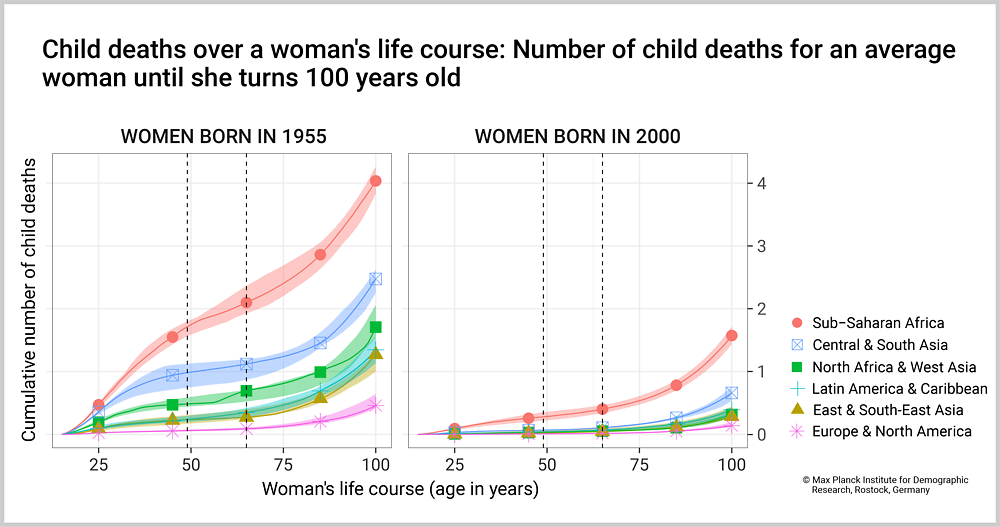August 19, 2021 | Press Release
Mothers May Experience the Death of an Adult Child More Often

The researchers suggest that ‘child death’ will increasingly come to mean the death of adult offspring for older mothers. © iStockphoto.com/fizkes
The first global estimates of mothers mourning the loss of a child shed light on how many families have experienced such deaths. Demographic projections by MPIDR researcher Diego Alburez-Gutierrez and colleagues suggest that ‘child death’ will increasingly come to mean the death of adult offspring.
The death of a child affects the well-being of parents and families worldwide, but very little is known about the scale of this phenomenon.
“We provide the first global estimates of how common it is for women to lose a child over their entire life course,” says Diego Alburez-Gutierrez, Research Scientist at the Max Planck Institute for Demographic Research (MPIDR) in Rostock, Germany. That includes the magnitude, prevalence, and distribution over age of maternal bereavement, for women born between 1950 and 2000.
The researcher and his colleagues have projected that the experience of losing a child will become increasingly uncommon. For example, women born in the year 2000 will experience, on average, 1.6 times fewer child deaths throughout their whole life compared to women born in 1955.
Revision of a long-standing global trend
“We quantified an unprecedented shift in the timing of maternal bereavement from reproductive to retirement age,” says Diego. The shift starts with women born in 1985. These mothers will be more likely to lose an adult child when they themselves are older than 65, than a young child before they turn 50.
That reverses a long-standing global trend. ‘Child death’ will increasingly come to mean the death of adult offspring.

© MPIDR
Download figure (PNG File, 522 kB)
To conduct the analyses, the team of researchers used a novel methodology from formal demography applied to data from the 2019 Revision of the United Nations World Population Prospects. Their study was recently published in the leading peer-reviewed journal Demography.
The researchers also documented differences in experiencing the death of a child for women in the Global North and South. They have projected persisting regional inequalities in offspring loss. Nevertheless, the analyses suggested that the historical gap between the Global North and South may narrow in the near future.
“I myself grew up in the high-mortality country of Guatemala, and I am now living in a low-mortality country, Germany,” says Diego. This has made him realize the different relationships and experiences that people have to death. “That is why I wanted to develop a measure to capture these differences,” Diego adds. He also wants to showcase how, even if rapid progress is made in reducing mortality, the impact of previous high mortality rates continues to affect individuals in their daily life for many generations.
Original Publication
Alburez-Gutierrez, D., Kolk, M., Zagheni, E.: Women’s Experience of Child Death: A Global Demographic Perspective. Demography (2021). DOI: 10.1215/00703370-9420770
Authors and Affiliations
Diego Alburez-Gutierrez, Max Planck Institute for Demographic Research, Rostock
Martin Kolk, Stockholm University
Emilio Zagheni, Max Planck Institute for Demographic Research, Rostock
Additional Information
Want to learn more about the specific situation in Your country? Or do You want to compare multiple countries with each other? Check out the visualizing tool for free: shinyapps.io/child_death_demography/
Diego Alburez-Gutierrez wrote a piece about this paper for IUSSP's Online News Magazine.